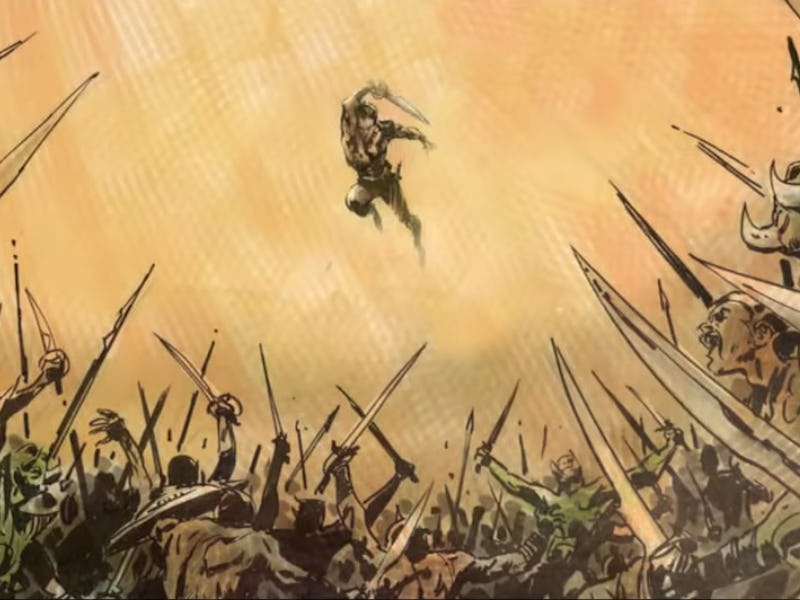What 'John Carter' Should Have Been
The pure vision before Hollywood put the sci-fi saga through development hell.

When the movie adaptation of Edgar Rice Burrough’s John Carter of Mars finally landed in 2012, John Carter was seen by many as a big whiff. A story that had influenced the most groundbreaking sci-fi tales in history arrived as an overblown caricature of all the bloated CGI epics it had helped spawn and quickly faded from memory as one of the great what-ifs in modern blockbuster cinema. But a new look into that what-if shows just what could have been.
Last week, a high resolution presentation reel for an unmade version of John Carter of Mars was uploaded on to YouTube by Harry Knowles, the film’s former producer and head of the once-great movie geek Mecca, Ain’t It Cool News. Knowles’ project was set up at Paramount and was supposed to be directed by Kerry Conran, whose sole feature directing credit remains the 2004 steampunk cult classic Sky Captain and the World of Tomorrow.
With gorgeous concept art, rough takes on alien battles, a fitting Jurassic Park temp track, and even a surprise narrator, it had a sufficiently epic scope. It shows the dangerous value of process. There’s no telling if this would have been better than director Andrew Stanton’s version, but it’s still fascinating to ponder the layers of talent that went into bringing the story that mattered to so many people to the screen.
After Conran passed in 2005, the project was picked up by a pre-Iron-Man Jon Favreau, who sought to compact Burrough’s first three books into one film. That version stalled, and when nothing came of it, the rights to the property passed to Disney in August of 2006, who then gave it to Stanton.
But initial plans for a John Carter of Mars movie stretch back to 1986, when Disney tasked a series of screenwriters to have a go at the story. It continued on in development purgatory for eons.
Eventually, a draft by screenwriters Ted Elliott and Terry Rossio, who would go on to pen the Pirates of the Caribbean movies, was accepted, and the company hired Die Hard director John McTiernan to helm the project in August 1990. Then it languished for more than a decade. McTiernan dropped out because it continually passed from screenwriter to screenwriter; Paramount eventually snapped up the rights from Disney. Paramount tapped Sin City director Robert Rodriguez. Then he left due to legal battles with the Director’s Guild of America. Conran came on board.
John Carter’s long and complicated history is dotted with people who were legitimate fans of the property trying their best and failing to do it justice. This makes it ripe for opportunities like getting its own speculative documentary just like Jodorowky’s Dune, a movie that chronicled the failed history of bringing author Frank Herbert’s similarly beloved and highly influential sci-fi novel Dune to the screen by Chilean weirdo director Alejandro Jodorowsky.
The final movie shouldn’t define John Carter’s character as a cultural endpoint. The process is actually more fascinating, which makes it a constant talking point. It’s a perpetual what-if. The opportunity for a brilliant treatment was there, and it was missed.